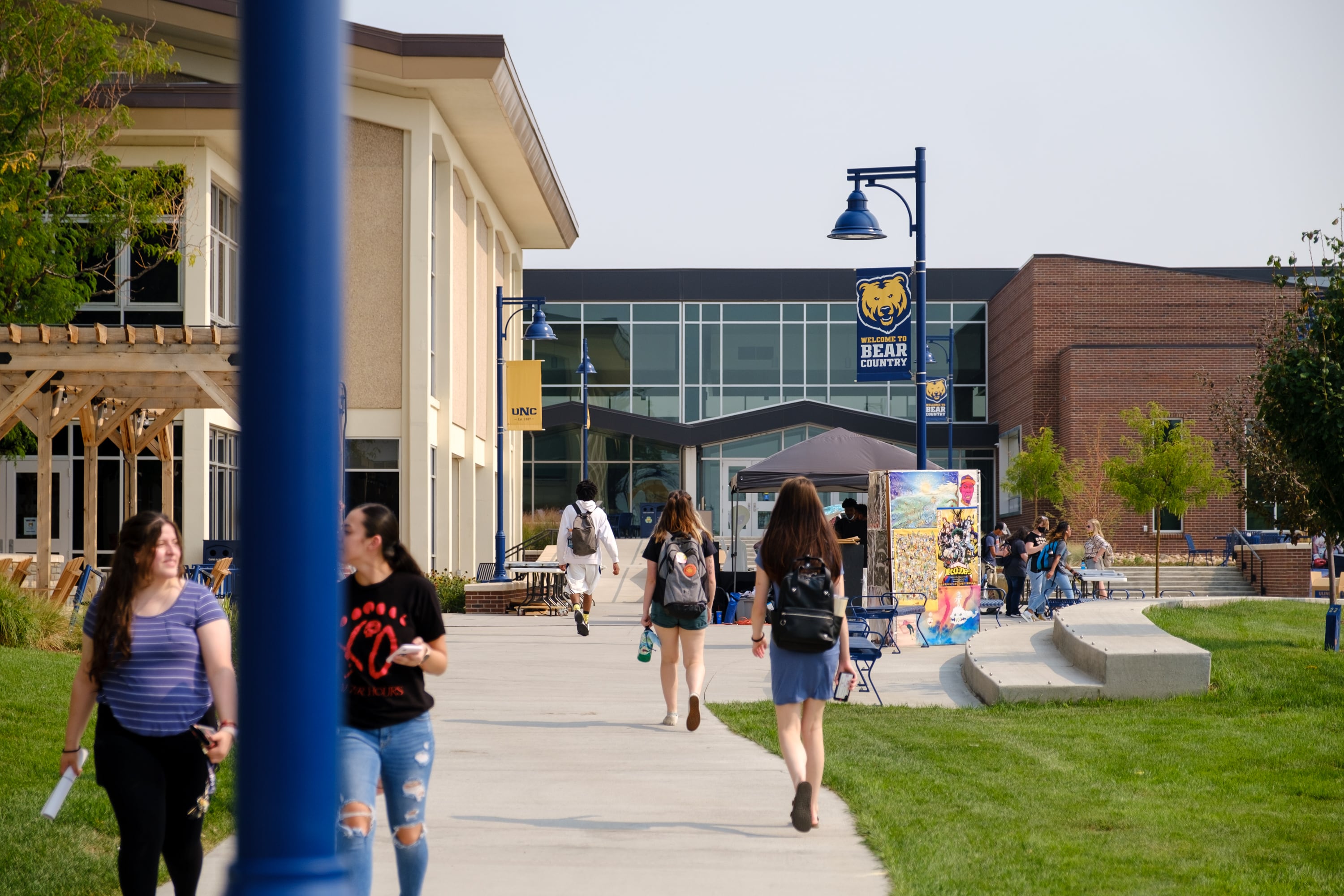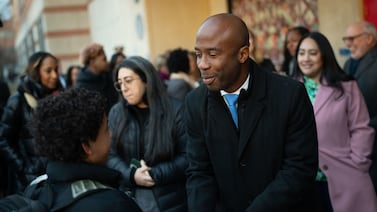Sign up for our free monthly newsletter Beyond High School to get the latest news about college and career paths for Colorado’s high school grads.
How can faculty play an even greater part in helping college students get to graduation?
This is the question University of Northern Colorado leaders are addressing as they develop a plan to further increase student retention rates — even if they’ve achieved record highs for the past two years.
The Greeley university’s research is part of a philanthropy-backed program to help school leaders identify, study, and implement changes to close gaps that exist for students of color and those from low-income backgrounds.
The program, supported by the Bill & Melinda Gates Foundation and administered by the American Association of State Colleges & Universities, funds the research costs, and provides coaching and data experts to help schools figure out new practices. About 60 other institutions nationwide participate in the program, which is called the Student Success Equity Intensive.
A third of University of Northern Colorado students are from low-income backgrounds and about a quarter are Hispanic, which is slightly higher than the state average. The school also enrolls a large number of students who are the first in their families to go to college.
School officials identified faculty as a key to student success. Among college staff, faculty members spend the most time with students and can be on the front line of identifying student challenges, said Kirsten Fleming, provost and executive vice president for academic affairs.
Yet faculty tend to be experts in their field and research and sometimes aren’t as versed in how to help students or get them connected to resources.
“They have a lot of demands on their time and students,” Fleming said. “So the more that we can help faculty members do their jobs, the more that the students benefit.”
Northern Colorado has expanded student support in recent years, including peer-to-peer mentoring and freshman seminars that help students excel in college. Like many other schools, the college also has dedicated administrators who help students with challenges they encounter in school or life, such as food or housing insecurity.
The support is helpful, but some college presidents have pointed out that faculty hold the most important roles in helping students graduate. Since they work with students several times a week, faculty can play a big role in helping identify when students are struggling.
“Faculty are committed to students,” Fleming said, so the objective is “really helping them be even more effective and more successful in that.”
The Student Success Equity Intensive asks colleges and universities to think about college-level changes. Schools first identify, then research, and eventually put into place practices to help students with the most challenges. Since 2021, schools have been annually selected to participate as a cohort.
Fort Lewis College and Metropolitan State University of Denver previously participated in the program, but dropped out.
The Fort Lewis employee working on the program has left the college. A MSU Denver spokesman said the program confirmed the strategies MSU Denver has in place, but the university elected not to continue due to similar efforts already underway.
Northern Colorado doesn’t yet know which practices it wants to use, because it is in the early stages of the program. Fleming said the school will now spend the next year researching different approaches, and will collaborate with other schools in the program or get support from experts nationally to achieve its goals.
Fleming envisions that faculty would be able to not only mentor students or hold office hours, but also help them if they need resources such as food or mental health programs. The training would enhance the classroom work that faculty already does, she said.
“The faculty role really wouldn’t be to address issues directly,” she said. “It’s to connect the students.”
Fleming said the type of work the Student Success program is funding is important to the mission of Northern Colorado and, if successful, will make a big difference for students.
Outside of the Student Success research program, Northern Colorado’s recent efforts to focus on student outcomes have started to pay off. The school has increased its student retention rate to over 76% of its 2023-24 freshman students.
While that’s below the national average of 81% among public four-year universities, Fleming said the rate marks a historical high.
Fleming acknowledged that the school has more work to do. Retention rates for students of color and those from low-income backgrounds have lagged behind at about 70%. And only about half of all students graduate within six years compared with 65% nationally. Graduation rates at Northern Colorado are also lower among Black, Hispanic, and American Indian students, according to national data.
Jason Gonzales is a reporter covering higher education and the Colorado legislature. Chalkbeat Colorado partners with Open Campus on higher education coverage. Contact Jason at jgonzales@chalkbeat.org.






